The Saudi leadership has reacted to the attacks on the country’s critical oil infrastructure with deep concerns about its acute vulnerability. Despite spending a fortune on the military and the renewed presence of American troops in the kingdom, the crown jewels of the Saudi economy were delivered a deadly blow. The new Saudi energy minister has been challenged to get the infrastructure back on line as quickly as possible. Addressing Saudi military weaknesses is a more difficult problem.
The Zaydi Shiite Yemeni Houthi rebels immediately took credit for last Saturday’s attacks, claiming that they launched 10 drones to strike their targets. Very importantly, they said that the attacks were facilitated by Saudis in the kingdom, most likely Saudi Shiites in the oil-rich Eastern Province. The scale and sophistication of the attacks are beyond the known capabilities of the Houthis.
The Trump administration has said that they believe the attacks were launched directly from Iran and represented an unprecedented “act of war.” Both drones and cruise missiles were used. The Saudis have been more guarded, and say the weapons were Iranian-made and fired from the “north.” Saudi Shiite make up a sizable portion of the workforce in the Saudi oil business, and perhaps some provided information on the most critical nodes to attack.
It is clear that Iran and the Houthis are collaborating, both in the operation of the attack and the ensuing public discussion. Tehran wants to hide its hand, and the Houthis want the credit. The Yemenis can cite self-defense, in light of the fact that Saudi Arabia has been launching air strikes on Yemen for over four years.
The attack was far more devastating than any attack from Iraq’s Saddam Hussein with Scud missiles in 1991 or al-Qaida terrorists in 2006. The Saudis are facing a serious threat that they clearly did not anticipate. The long-term damage to the infrastructure is unknown.
The Saudis are facing a serious threat that they clearly did not anticipate.
Trump administration officials have characterized the behind-the-scenes Saudi reaction as akin to the shock of 9/11 in America. The Saudis have spent a fortune since 1991 on air defense, including the purchase of six battalions of Patriot surface-to-air counter-missiles. But they failed completely. The new American base at Prince Sultan Air Base also has Patriots, but apparently all of the systems were oriented in the wrong direction.
But the big difference between the Americans’ reaction to 9/11 and today’s Saudi reaction is the Saudis have no serious options to respond; they need the Americans to fight their war. Robert Gates, the former director of central intelligence and secretary of defense, famously said years ago that the Saudis are always ready to fight Iran “to the last American.”
Saudi Crown Prince Mohammed bin Salman has sought to project the image of a strong nationalist leader, adept in the use of force. In fact, his war in Yemen has been a disaster since the start. At enormous cost to the Yemeni people, it has bogged down Saudi Arabia into a quagmire. The opposition to the Houthis has split this year into quarreling camps, with southern separatists taking control of Aden. The Saudis’ most important ally, Abu Dhabi, has all but abandoned the war effort.
The new attacks are now a major humiliation for Mohammed bin Salman who has been exposed as ineffectual in defending the country against its historic rival Iran, and its partner the Houthis. Despite having the third-largest defense budget in the world, the kingdom cannot defeat a rag-tag militia in the Arab world’s poorest country, or protect its oil infrastructure from its enemies.
The crown prince’s half-brother — Prince Abdulaziz bin Salman, 59 — has been pushed into the limelight by the attacks. Only days after becoming the first member of the royal family to become minister of energy, Abdulaziz is facing the greatest challenge in the history of the country’s oil business. Since 1960, this minister has always been a technocrat.
Abdulaziz has the training and expertise for the job. He has worked in the industry since the 1990 Kuwait crisis, and has been at OPEC meetings for years. He has the savvy and demeanor for the job. According to a very well-placed source, Abdulaziz has been critical of Mohammad bin Salman’s policies in the past. The king may be developing an alternative power center to his reckless younger son.
If the Trump administration takes only token steps against Iran, the Saudis can expect more attacks. The Saudis are also very worried by all the talk of Trump seeking a meeting with the Iranians. That option may be on the back burner for now, but is likely to come back.
In the meantime, the Houthis have promised more attacks on Saudi Arabia and the United Arab Emirates. They say that they have identified numerous targets in Abu Dhabi.
It is imperative that the international community find an end the costly war in Yemen, which serves as a pretext for the Iranians. It’s in the kingdom’s self-interest to get out of the quagmire the crown prince has put it in — and sooner rather than later.
The Brookings Institution is committed to quality, independence, and impact.
We are supported by a diverse array of funders. In line with our values and policies, each Brookings publication represents the sole views of its author(s).

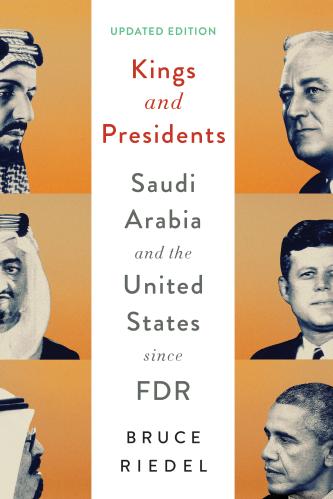
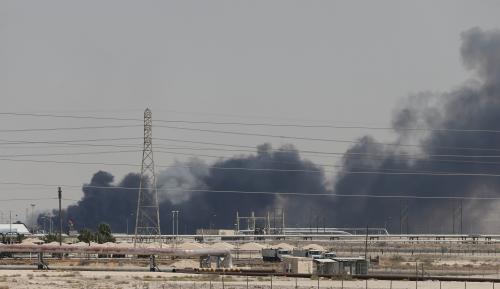
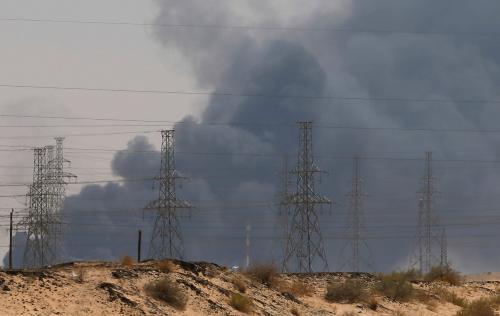
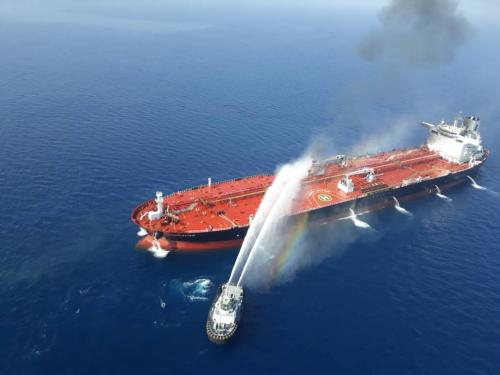

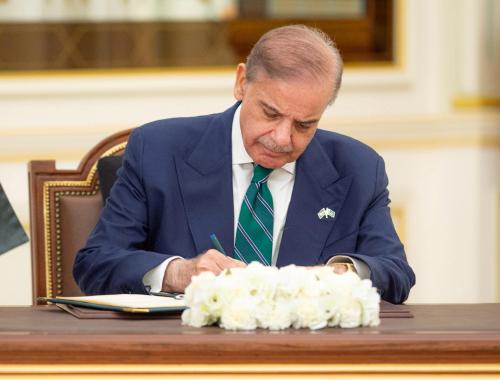

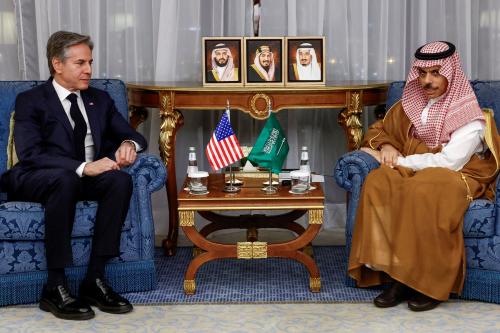
Commentary
Saudi leaders thought the kingdom was safe — they were wrong
September 19, 2019